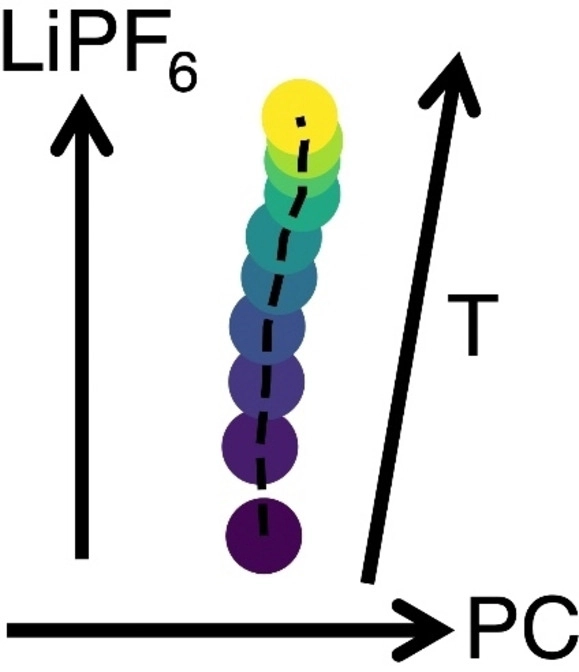 Image credit: Batteries & Supercaps
Image credit: Batteries & SupercapsAbstract
Non-aqueous aprotic battery electrolytes need to perform well over a wide range of temperatures in practical applications. Herein we present a one-shot active learning study to find all conductivity optima, confidence bounds, and relating formulation trends in the temperature range from −30 °C to 60 °C. This optimization is enabled by a high-throughput formulation and characterization setup guided by one-shot active learning utilizing robust and heavily regularized polynomial regression. Whilst there is an initially good agreement for intermediate and low temperatures, there is a need for the active learning step to improve the model for high temperatures. Optimized electrolyte formulations likely correspond to the highest physically possible conductivities within this formulation system when compared to literature data. A thorough error propagation analysis yields a fidelity assessment of conductivity measurements and electrolyte formulation.